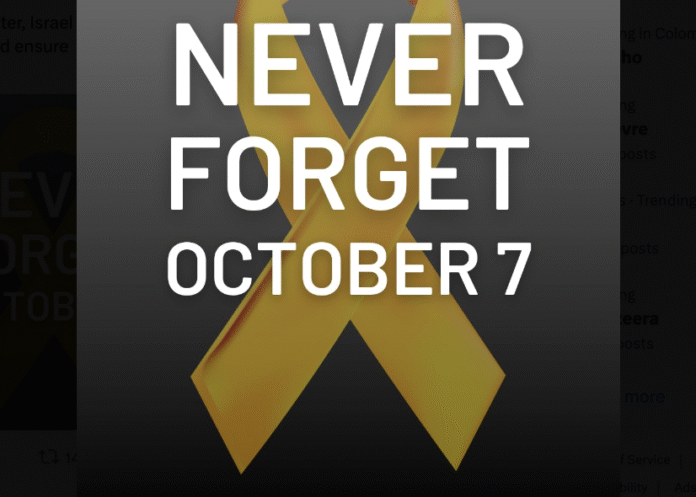The 21st century has witnessed many days of infamy, but among the most horrific was October 7, 2023, when Hamas launched a coordinated assault on southern Israel. More than 1,200 people were killed, including 38 children, and 251 civilians were kidnapped – among them young men and women attending a music festival. Families were slaughtered in their homes, babies were burned alive, entire communities devastated.
Two years on, the anniversary of the attack has become a flashpoint far beyond the Middle East. In Colombia, the government of President Gustavo Petro has called on citizens to participate in pro-Palestine marches scheduled for Tuesday, October 7, including a demonstration outside the U.S. Embassy in Bogotá. The move once again underscores how the country’s first leftist administration is willing to politicize a day of mourning for Israeli victims to rally his radicalized base.
Given that the country’s education union, Fecode, summoned a rally outside the U.S Embassy in Bogotá, the foreign mission has requested additional security from Colombia’s Ministry of Defense to safeguard its compound and personnel. Heightened security measures follow a pro-Palestine demonstration last week that turned violent, with groups vandalizing a police command post in the financial district of Avenida Chile and defacing banks and storefronts.
President Petro has promised that the state will guarantee security during the marches, while defending the right to peaceful assembly. “The Government of Colombia will protect the U.S. Embassy but will allow the Colombian people their right to free expression and assembly,” he wrote on X, calling on demonstrators to “uphold the rules of peace.”
Interior Minister Armando Benedetti urged Colombians to join the march “just as in Europe — massive and peaceful,” while rejecting claims that the government itself had organized the protest. Foreign Minister Rosa Yolanda Villavicencio also called for calm, emphasizing that the demonstrations should unfold “in an environment of peace and respect.”
The anniversary comes as negotiations to finalize a deal based on U.S. President Donald Trump’s Gaza ceasefire plan began in Egypt. Talks are expected to last several days, according to a senior Egyptian official who spoke to CNN. Trump said Hamas was “making important concessions” during the negotiations.
International reactions to the commemorations taking place in Israel have been sharp. Former British Prime Minister Boris Johnson said it was “entirely up to Hamas — and Hamas alone — to end the suffering in Gaza,” calling on the group to release hostages and renounce terrorism in exchange for amnesty and international investment.
The Canadian-Israeli author Aviva Komplas describes October 7 as “not only the deadliest day in modern Jewish history” but one that opens “a new front in a generational war against the West,” lamenting that “Western democracies once again lack the stomach or will to confront patient, determined adversaries even when we are militarily stronger.”
U.S. Secretary of State Marco Rubio on Tuesday reaffirmed Washington’s position: “On this second anniversary of Hamas’s heinous October 7 attacks, the United States remains steadfast in our support for Israel in our common fight against terrorism and our shared commitment to bringing an end to the suffering of all hostages and their families.”
In Colombia, Ingrid Betancourt, the former presidential candidate and FARC hostage, who spent six years in captivity, condemned the timing of the Bogotá rallies as “a gesture of hatred,” calling October 7 “the most atrocious episode against the Jewish community since the Holocaust.” She warned that choosing this date to march is “an act of intolerable cruelty that symbolically celebrates Hamas, a terrorist group funded by drug money produced here,” and “tramples on the memory of the victims.”
As pro-Palestine marches unfold across Colombia, the day reflects both the enduring trauma of October 7 and shifting political currents around the conflict. Petro’s support of the rallies is “offensive to every decent Colombian,” writes Betancourt. “The date was not chosen casually and borders in an unsettling way as an apology of terrorism,” believes Colombian Congressional lawmaker Andrés Forero.

